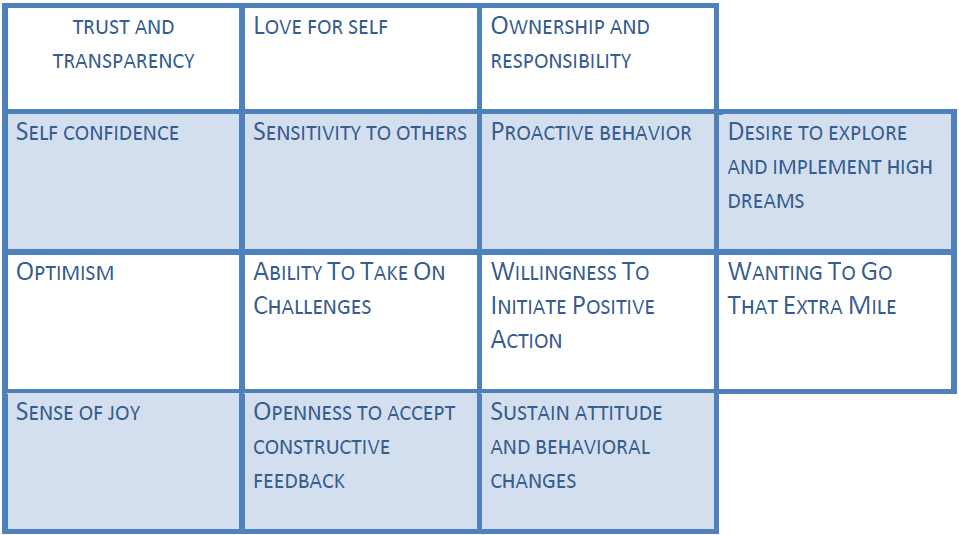Potentially there would be numerous opportunities which would evolve during the Coaching dialogues, when either the Client directly surfaces issues and concerns or emerges from their unstated or the underlying thoughts, beliefs and emotions that may relate to self ‐condemnation or condemnation by significant others. These instances could be at home or work, or both.
It is very important when the Client shares or reveals issues pertaining to condemnation, the Coach has to be on extra guard to avoid judgment, bias, prejudice or worse still condemnation of the Client, for these would defeat the very purpose of support to and growth of the Client. Further it is equally important, for the Coach to hold back prescriptions, advice and solutions, which would be an easy trap to get into, which in turn will take away the intensity of Client’s sharing and go contrary to the Coaching objectives and processes.
Hence it is incumbent upon the Coach to adhere to a few norms like being absolutely in synchronization with the client, travel with their raw emotions, sentiments and difficulties, in its entirety. In short, the values, attributes and skills of practicing empathy are absolutely imperative in such a phase of Coaching. Being in silence, at times just valuing the person that the Client is, active listening, seeking information through apt powerful open ended questions, discover the inner motives, beliefs, values of the Client are various options that the Coach can deploy. In a nutshell the norms for the Coach are to avoid judgment, bias, prejudice, advice, prescriptions and solutions and therefore consequently avoid condemnation of the Client.
The Coach has an enormous responsibility to indulge in constant reflections, self – awareness and work on self to be self ‐ appreciative about his/her own persona, what he/she enjoys in life, what is he/she passionate about in life and be mindful about what he/she brings to the Coaching table. In reality, the Coach ought to possess and display an emotionally healthy wellbeing, wherein the process of living life need to be seeking ways and means of appreciating the goodness and possibilities in situations and people around, with die hard optimism.
Placing this positive approach in perspective, the Coach need to be a connoisseur in appreciative ways of acknowledging, recognizing, praising, supporting, encouraging and spurring the client by creating the space for as many opportunities and possibilities of what inherent goodness the Client possesses and what it positively means for the Coach to listen, understand, identify and be inspired!
This appreciative approach will for sure, work across all diverse Clients, including outstanding ones or even when the Clients are sharing positive achievements or big dreams for the future.
To reiterate the appreciative approach with the help of appropriate processes and tools need to be adopted more so for Clients, who suffer from the ignominy of self ‐ condemnation or condemnation by others.
On the whole, Appreciative Coaching would steer all the positive effects and impact of authentic appreciation on the Client listed out earlier in this note.
Some beneficial takeaways for Client, in the Coaching process, are increased levels of:
Some of the Coaching Tools and techniques that can be used by the Coach:
The one thing you can’t take away from me is the way I choose to respond to what you do to me. The last of one’s freedoms is to choose one’s attitude in any given circumstance Viktor E. Frankl
Nobody can hurt me without my permission Mahatma Gandhi



